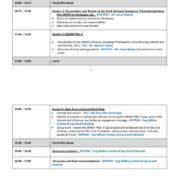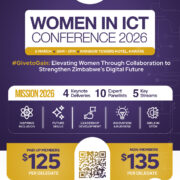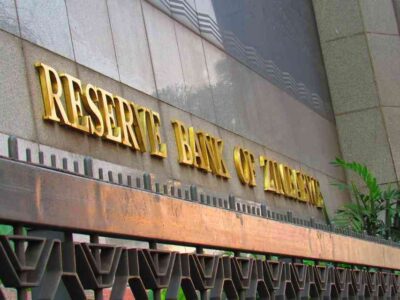By Ross Moyo
Zimbabwe has announced that prepaid and smart electricity meters will be installed on all farms by October 2025, as part of a wider government directive to modernize electricity management and improve revenue collection.
The initiative will see the introduction of prepaid meters, which allow users to pay in advance for electricity, similar to mobile airtime top-ups and Smart meters, which offer real-time monitoring, remote billing, and automatic disconnection capabilities.
This move comes on the back of a successful agricultural season, with improved yields thanks to above-normal rainfall. While many farmers are already harvesting or preparing for winter cropping, the government sees the new metering systems as a way to help them better manage electricity consumption and avoid accumulating debts.
In past years, the Zimbabwe Electricity Supply Authority has struggled to recover debts from government departments, irrigation schemes, and large-scale farms hampering its ability to invest in power generation and infrastructure upgrades.
The new meters will also support activities like grain drying, especially for farmers delivering to the Grain Marketing Board (GMB), whose operations rely heavily on electricity.
According to Energy and Power Development Minister July Moyo, the smart metering initiative will extend beyond agriculture. By October, all major electricity consumers including government ministries, parastatals, commercial farms, and other large institutions will be required to operate under prepaid or smart metering systems.
“By October, ZESA will put farmers on prepaid, Government Ministries on prepaid, and parastatals on prepaid,” said Minister Moyo at an energy sector briefing in Harare.
He added that the move is part of broader reforms to ensure ZESA operates on a financially sustainable, cost-reflective model.“Cabinet has now said ZESA is part of our reforms. Go and implement smart and prepaid metering across the entire economy so that there is predictability of income,” he said.
The rollout is expected to yield the following positives
-Improve billing accuracy by eliminating estimated charges
-Ensure upfront payments for electricity
-Enhance ZESA’s ability to collect revenue consistently
-Allow consumers to monitor and manage usage more effectively
-Reduce the financial burden on ZESA from unpaid electricity bills
The government hopes this shift will not only stabilize ZESA’s finances but also support long-term investments in energy infrastructure, helping meet the country’s growing power demands.














Comments